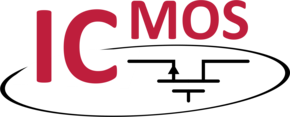Sensory occupant detection for safe autonomous driving using radar
The introduction of safe autonomous vehicles requires reliable occupant monitoring (“in-cabin sensing”). Radar sensors are very well suited for this and have clear acceptance advantages over camera-based systems due to their inherent privacy protection. However, the spatial, speed and angular resolution of the sensors must be significantly improved compared to the state of the art. This requires an increase in usable bandwidth, operating frequency and the number of virtual reception channels.
In SICHER, a high-resolution radar sensor with a highly integrated broadband transceiver in SiGe BICMOS technology will therefore be developed as a key component. In addition to technology and circuit development, the development of AI-based algorithms for object recognition and classification as well as for the detection of gestures and vital parameters for direct attention assessment is a focal point. They are to be implemented close to the sensor in embedded AI accelerators.
The performance of the multifunctional sensor technology, including the AI algorithms for deriving vital parameters, is demonstrated in the laboratory and in the test vehicle.
SICHER is one of the four projects in the “NovoMotive” family, which has set itself the goal of using standards to create technology standards for tomorrow's automotive electronics systems. The use of synergies through the exchange and transfer of results within the project family increases the benefits of the project results and enables a sustainable influence on the entire automotive industry.
